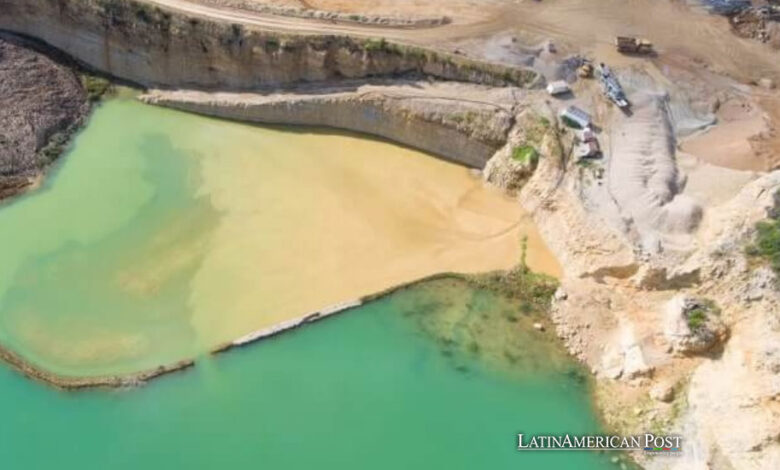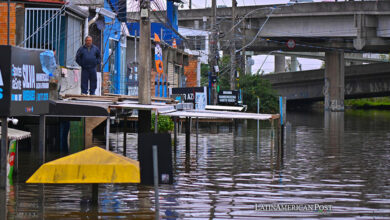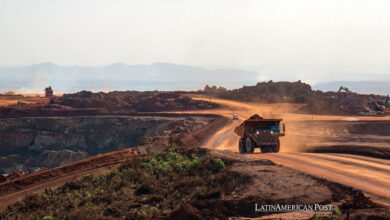Ecuador’s Amazon Mining Deal Stirs Controversy and Hope

Ecuador’s National Mining Company (Enami) has teamed up with Canadian Solaris Resources to explore over 39,000 hectares in the Amazon, sparking debates about environmental and social responsibilities amid potential economic gains.
Ecuador’s Empresa Nacional Minera (Enami) announced a significant partnership with Canadian-based Solaris Resources to encapsulate the growing complexities of resource extraction in environmentally sensitive regions. This $25 million deal to explore potential mineral deposits across 39,000 hectares in the Amazonian province of Morona Santiago represents a significant economic opportunity but also highlights the deep-seated tensions between development and conservation that define much of Latin America’s approach to natural resources.
Rejuvenating Ecuador’s Mining Sector
Vice Minister of Mines Diego Ocampo, who witnessed the signing, described the agreement as a “strategic alliance” aimed at rejuvenating Ecuador’s mining sector—a sector that President Daniel Noboa’s government is eager to expand as part of broader economic development plans. The administration views mining as a pivotal element in Ecuador’s financial strategy, emphasizing responsible and environmentally sensitive extraction methods.
Emmanuel Delaune, manager of Enami, underscored the national miner’s role as the executor of the country’s mining policies, aiming to establish a model of responsible mining. According to Delaune, this model is epitomized by their collaboration with Solaris, a company that has been active in Ecuador for five years and is committed to inclusive and responsible mining practices.
Federico Velásquez, President of Solaris for Latin America, praised his company’s innovative model in Ecuador. This model involves community and sectoral engagement in the mining process—a method reportedly unprecedented in the region.
Exploration in Morona Santiago
The exploration activities are set to be conducted in the lush landscapes of Morona Santiago, an area already identified by Solaris for its Warintza mining project, which has shown promising deposits of copper, gold, and molybdenum. This project, and others like it, promises substantial returns for the state and local communities, leveraging advanced technologies to maximize resource valuation and extraction efficiencies.
However, this optimistic outlook is only sometimes shared. At the PDAC, the world’s largest mining fair held in Toronto, controversies surrounding these initiatives came to light. The Shuar-Arutam People (PSAH) and international organizations like MiningWatch Canada and Amazon Watch filed a complaint against Solaris with the British Columbia Securities Commission in Canada. Jaime Palomino, president of PSAH, expressed significant concerns about the project’s impacts on the environment and the indigenous habitat—concerns reflect longstanding fears among native populations about the disruptive effects of large-scale mining.
These fears are compounded by a lack of consultation with indigenous communities; a grievance echoed at the PDAC event where President Noboa announced additional investment agreements totaling $4.8 billion. These agreements were met with immediate backlash from Amazonian indigenous groups, who claimed they were not adequately consulted—a requirement under international and Ecuadorian law for projects that affect indigenous lands.
Moreover, Leonidas Iza, president of the Confederation of Indigenous Nationalities of Ecuador (Conaie), has voiced strong opposition to the government’s mining agenda, which he argues has not contributed to national development but benefitted foreign companies and powerful local elites. Iza’s criticisms also pointedly include President Noboa, suggesting that the president’s family business interests might influence his administration’s pro-mining policies.
Balancing Development and Conservation
This feature of resource-rich Latin American countries grappling with the dual challenges of economic development and environmental stewardship is not unique to Ecuador. Across the region, nations rich in natural resources face similar dilemmas, balancing the immediate financial benefits of resource extraction against long-term environmental sustainability and social equity. The situation in Ecuador exemplifies these conflicts, highlighting the critical need for transparent, inclusive, and environmentally sound policies that truly benefit all stakeholders, especially the indigenous populations who are most directly impacted by mining activities.
Also read: Ecuador Faces Energy Crisis and Suspends Workdays
As Ecuador moves forward with its mining initiatives, the world watches closely. The outcome will not only affect the local ecosystems and communities but also set precedents for how resource-rich nations in Latin America navigate the complex interplay of economic development, environmental conservation, and social justice in the years to come.





